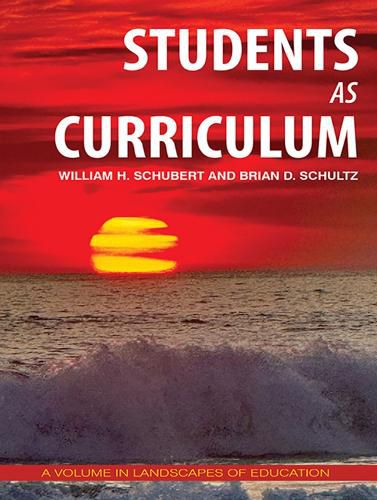Readings Newsletter
Become a Readings Member to make your shopping experience even easier.
Sign in or sign up for free!
You’re not far away from qualifying for FREE standard shipping within Australia
You’ve qualified for FREE standard shipping within Australia
The cart is loading…






This title is printed to order. This book may have been self-published. If so, we cannot guarantee the quality of the content. In the main most books will have gone through the editing process however some may not. We therefore suggest that you be aware of this before ordering this book. If in doubt check either the author or publisher’s details as we are unable to accept any returns unless they are faulty. Please contact us if you have any questions.
This book explores possibilities for students to have a much greater role in curriculum than mere receivers of it. In fact, we suggest what happens when students are the curriculum. We draw upon our scholarship (theory, practice, and praxis) over the years to show how educational experiences can be invigorated and embodied when students ask the what's worthwhile questions, joining teachers as fellow curricularists, action researchers, and practical inquirers, to engage in creative insubordination that refines the theories within (and among) them through lifelong education. Such educational experience stems from listening carefully to students and creates meaning because it is of and by students, and therefore more genuinely for them. It is cultural experience writ large because it draws on curricula of educational experience from many spheres of life (outside of school and in school) to continuously reconstruct who and what they are. It draws on teacher and student lore and is improvisational, pedagogically pivoting, adapting, and emerging. It finds new spaces, crevices, and cracks wherein students continuously re-create themselves - the curriculum that they are becoming. This book includes previously published articles and book chapters by William H. Schubert and Brian D. Schultz. The authors include dialogic interludes between chapters to introduce, reflect on, and connect the chapters and their theorizing.
$9.00 standard shipping within Australia
FREE standard shipping within Australia for orders over $100.00
Express & International shipping calculated at checkout
Stock availability can be subject to change without notice. We recommend calling the shop or contacting our online team to check availability of low stock items. Please see our Shopping Online page for more details.
This title is printed to order. This book may have been self-published. If so, we cannot guarantee the quality of the content. In the main most books will have gone through the editing process however some may not. We therefore suggest that you be aware of this before ordering this book. If in doubt check either the author or publisher’s details as we are unable to accept any returns unless they are faulty. Please contact us if you have any questions.
This book explores possibilities for students to have a much greater role in curriculum than mere receivers of it. In fact, we suggest what happens when students are the curriculum. We draw upon our scholarship (theory, practice, and praxis) over the years to show how educational experiences can be invigorated and embodied when students ask the what's worthwhile questions, joining teachers as fellow curricularists, action researchers, and practical inquirers, to engage in creative insubordination that refines the theories within (and among) them through lifelong education. Such educational experience stems from listening carefully to students and creates meaning because it is of and by students, and therefore more genuinely for them. It is cultural experience writ large because it draws on curricula of educational experience from many spheres of life (outside of school and in school) to continuously reconstruct who and what they are. It draws on teacher and student lore and is improvisational, pedagogically pivoting, adapting, and emerging. It finds new spaces, crevices, and cracks wherein students continuously re-create themselves - the curriculum that they are becoming. This book includes previously published articles and book chapters by William H. Schubert and Brian D. Schultz. The authors include dialogic interludes between chapters to introduce, reflect on, and connect the chapters and their theorizing.